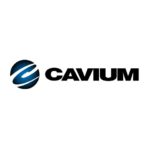At SC17 in Denver, Cavium showcased a wide variety of ThunderX2 Arm-based server platforms for high performance computing. “ThunderX2 server SoC integrates fully out-of-order, high-performance custom cores supporting single and dual-socket configurations. It is optimized to drive high computational performance delivering outstanding memory bandwidth and memory capacity. The new line of ThunderX2 processors includes multiple SKUs for both scale up and scale out applications and is fully compliant with Armv8-A architecture specifications as well as the Arm Server Base System Architecture and Arm Server Base Boot Requirements standards.”
Cavium’s ThunderX2 Processors coming to Penguin Computing Tundra OCP Platform
Today Penguin Computing, a provider of high-performance computing, enterprise datacenter and cloud solutions, announced availability of its Tundra Extreme Scale (ES) server platforms based on Cavium second-generation ARMv8-based ThunderX2 processors. Tundra ES Valkre servers powered by ThunderX2 processors are now available for public order, and a standard 19” rack mount models will ship in 3rd Calendar Quarter 2017. “Penguin Computing is the leading developer of open, Linux-based, HPC, cloud, and enterprise data center solutions,” said Jussi Kukkonen, Vice President, Advanced Solutions, Penguin Computing. “By extending our product roadmap to Cavium’s second generation 64-bit ARMv8 CPUs in our Tundra family of Open Compute servers we again step up our leadership position. Our customers get outstanding value from the efficiency and flexibility enabled by OCP infrastructure combined with best-in-class compute performance coming from Cavium’s ThunderX2 offering.”
Penguin Computing Adds Support for Singularity Containers on POD HPC Cloud
Today Penguin Computing announced support for Singularity containers on its Penguin Computing On-Demand (POD) HPC Cloud and Scyld ClusterWare HPC management software. “Our researchers are excited about using Singularity on POD,” said Jon McNally, Chief HPC Architect at ASU Research Computing. “Portability and the ability to reproduce an environment is key to peer reviewed research. Unlike other container technologies, Singularity allows them to run at speed and scale.”
Penguin Computing Adds Omni-Path and Lustre to its HPC Cloud
Today Penguin Computing announced a significant expansion of their Penguin Computing On-Demand (POD) High Performance Computing Cloud. The new offering includes the latest Intel Xeon processorss, Lustre, and Intel Omni-Path. “As current Penguin POD users, we are excited to have more resources available to handle our mission-critical real-time global environmental prediction workload,” said Dr. Greg Wilson, CEO, EarthCast Technologies. “The addition of the Lustre file system will allow us to scale our applications to full global coverage, run our jobs faster and provide more accurate predictions.”




